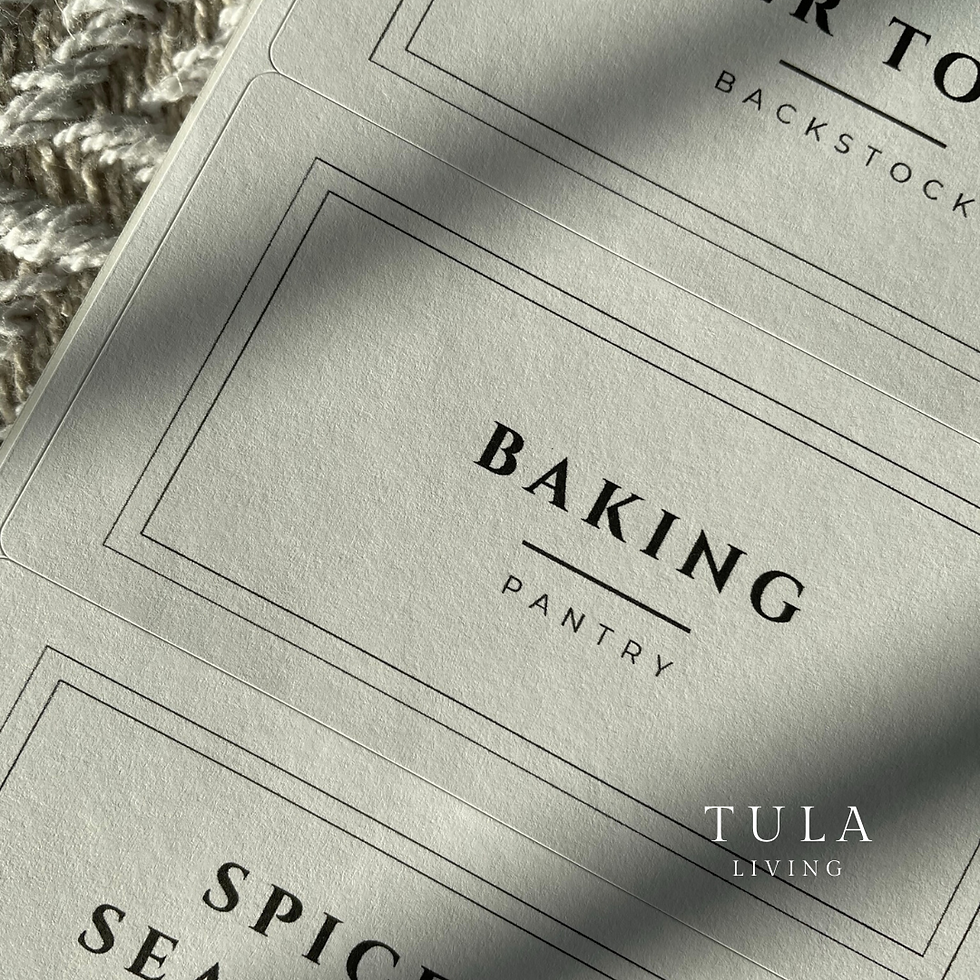How To Deal With Your Loved One’s Belongings After They’re Gone
- vanessaguinto

- Nov 17, 2022
- 3 min read
At one point or another, we’re going to say goodbye to the people or pets that we love dearly. Every situation is unique and no matter how you lose someone, the grief process can be a lot to navigate.
No one really talks about the logistical aftermath of loss that includes funeral preparations, paperwork, insurance, and dealing with their belongings. It’s hard enough to feel the pain and heaviness of grief, let alone having to deal with these other things. So today, I want to share the lessons I've learned and talk about how to deal with your loved one’s stuff with grace after they’re gone.
8 years ago today, my mom found peace after her fight with cancer. After she passed away, my dad asked me to clear out her stuff from their closet because it was too hard to look at every day. Now while I completely understood that, it was still really hard to do. When I tell you I cried the whole time, oh man. Every item reminded me of her and the newly formed vast hole in my heart. I felt an attachment to these items because they were all that were left of her in this physical world.

Although I felt an attachment to these items, I also had a profound realization that these clothes were just things. They were just items. That’s it. They didn’t mean anything beyond the meaning I added to it. This realization is what helped me move through this incredibly difficult task. Ultimately, these items could never encompass the amount of love she gave and the light she emitted from her very being. Her legacy was left behind in how she made people feel and not in the material items she accumulated.
Whether it’s been 1 week or 10 years since you’ve lost your loved one, here are 6 things that I hope will help you deal with their belongings after they're gone:
1. Take your time
Don’t rush.
If there are items you aren’t ready to part with but find it too difficult to look at, store them in a box out of sight for now. When you ARE ready, you can go back to sifting through it.
2. Do it with others
We aren’t meant to do life alone.
Ask siblings, friends, or parents to help you if they are capable of doing so. Ask for moral support. It may be nice to look back on some fond memories with others or even to have a shoulder to cry on when it hits hard.

3. Think about others who could enjoy and cherish these things too
When I was deciding on what to keep or give away, I knew that my mom's items were being sent to our family back home in the Philippines. So I knew her sisters and nieces would get to enjoy these items and feel close to her again. I also asked her best friends, in-laws, and cousins to pick through what they wanted because I knew they would cherish these items whole heartedly as well.
4. Take photos
If you are ready to let go of some items, you can take pictures of it so you can look back without these items taking up physical space in your home.

5. Reframe the narrative
Remember that saying goodbye to their stuff does not mean you are forgetting them.
It does not mean you don’t love them anymore either. That love will ALWAYS be there, before these items existed and long after they're gone as well.
6. You don't have to get rid of everything
Although it can be a part of your healing journey to let go of items and give your space a restart, you can still keep some stuff. Keep the stuff that you will truly cherish. 8 years later, I still have some of my mom's items. I didn’t want to let go of everything and it did take me some time to let go of more stuff over the years. However, the items I’ve held on to are some of my most cherished items. They bring back really good memories of her.

If you are in this process and find it difficult to do it on your own, we offer decluttering services that can help you get through it with patience and care. Inquire by clicking here or send us an email at info@tulaliving.ca.
I'm sending you the biggest hug and I hope this helps,
Xo
Vanessa



Comments